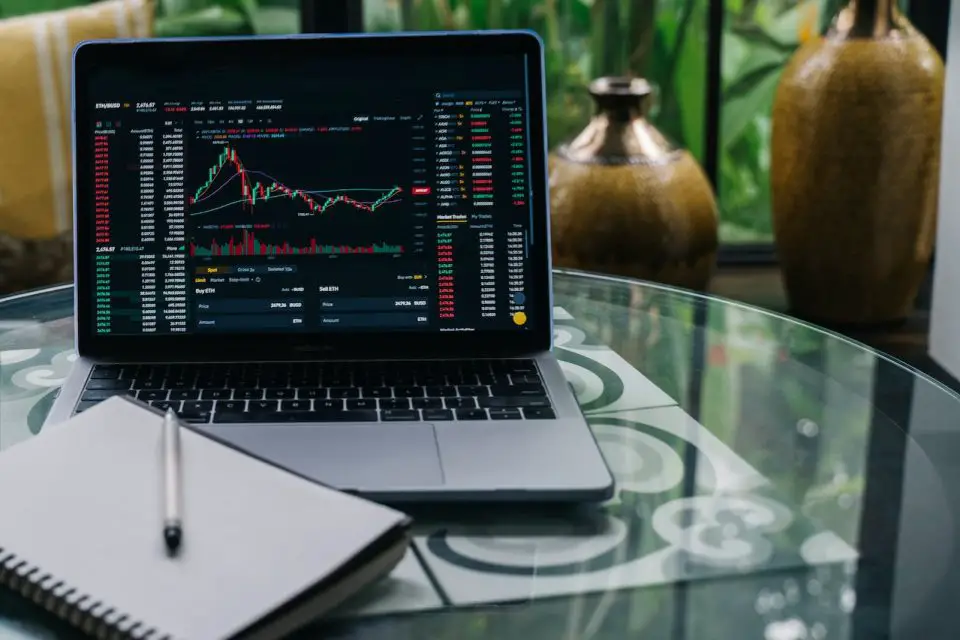The powerhouse of US stocks, megacap tech shares, is showing signs of a slowdown after months of propelling the market to record-breaking heights.
In a recent blow to the tech giant Apple Inc., reports of an extended ban on iPhones within certain Chinese government agencies led to the steepest two-day drop in shares witnessed in a month. This downturn in Apple’s fortunes sent ripples across its supply chain, with Qualcomm Inc. and Skyworks Solutions Inc. both experiencing over a 7% decline on Thursday. Meanwhile, Microsoft Corp. and Nvidia Corp. continue to face persistent pressure.
For fund managers who recently turned bullish on megacap tech shares, this slowdown couldn’t have come at a worse time. Many had repositioned their portfolios towards the seven largest tech companies, which include Amazon.com Inc. and Alphabet Inc. This shift threatens to deprive the market of eager investors hoping to make up lost ground. Simultaneously, the fervor surrounding artificial intelligence applications is subsiding, and the Federal Reserve remains resolute in maintaining elevated interest rates.
Greg Boutle, the Head of US Equity and Derivative Strategy at BNP Paribas, remarked, “Where tech goes is going to be where the US equity market goes. Tech has shown such strong leadership that if it rolls over, it’s going to be very, very challenging for the market to perform.”
The Nasdaq 100 had surged by 39% in the first half of the year, driven by excitement over AI and signs of the Federal Reserve’s tightening cycle nearing its end. However, the atmosphere has turned less favorable, with rising Treasury yields posing a threat to the group’s lofty valuations. The tech-heavy index has seen negligible movement in the third quarter, and it fell by 0.7% on Thursday. Apple experienced a 2.9% drop, marking a two-day slide of over 6%.
This doesn’t signal the end of tech’s run, though. The sector boasts robust financial positions, with both earnings and revenue growth expected to outstrip the overall market next year, according to data compiled by Bloomberg Intelligence. Additionally, fund managers who missed the first-half rally have proven to be dependable buyers at any sign of weakness.
However, the level of concentration in positioning has escalated. A Bank of America fund manager survey revealed that investors are the most overweight on tech since December 2021, and 60% of respondents view being long big tech as the most crowded trade.
A BofA analysis of second-quarter filings indicates that a fifth of funds allocated more than 40% of their assets to the seven largest tech names. These seven entities accounted for 29% of active funds’ weight in S&P 500 companies, 150 basis points higher than their weight in the index, according to Savita Subramanian, BofA’s Head of US Equity and Quantitative Strategy.
Keith Lerner, Co-Chief Investment Officer at Truist Advisory Services, expressed that while long-term bets on tech hold merit, crowding and other short-term concerns have led him to adopt a neutral stance on the sector.
“The positioning in tech means that expectations are high and it will be hard to find the next marginal buyer, especially since there’s already been a big move and it isn’t apparent what the next upside catalysts will be,” he said. “If recent buyers were just chasing performance, you could see them reverse pretty quickly if there’s any warning sign.”
Valuations also leave little room for error. The Nasdaq 100 trades at 24 times estimated earnings, above its 10-year average of 21, while Apple, Microsoft, and Nvidia all trade at premiums to both their own history and the market overall.
UBS Global Wealth Management stated last week that, relative to the multiple of the S&P 500 Index, the tech sector’s price-to-earnings ratio stands at “its highest level since the global financial crisis.”
This exacerbates the implications of Apple’s troubles, as the two-day rout wiped out almost $200 billion in market value from the world’s most valuable company.
Steve Sosnick, Chief Strategist at Interactive Brokers, emphasized, “When the largest company is facing restrictions in a major economy, that is a giant headwind, and it should force investors to reassess valuations.”
“The reason I’m so generally cautious is that investors are already overweight on tech, and for it to outperform further, they would need to further increase their weighting,” he said. “Given how much multiples have risen, it is more likely they cut their weighting, which would mean a lot of selling pressure.”
The Nasdaq’s 2023 rally hit a roadblock on July 18, landing 4.4% below its November 2021 record. Since then, it has slid almost 4%, with factors beyond Apple contributing to the downturn.
The belief that AI would continue to drive prices higher waned after Nvidia’s latest results last month. Despite the chipmaker delivering another exceptional revenue forecast, the stock barely budged, causing a ripple effect in the broader market.
In conclusion, the once-unstoppable megacap tech shares, which propelled the market to unprecedented heights, are now displaying signs of a notable slowdown. As the megacap tech sector faces headwinds, investors grapple with heightened concentration and valuations near historic highs. The fate of these tech giants holds significant implications for the broader market’s trajectory in the coming months.
Source: Bloomberg

